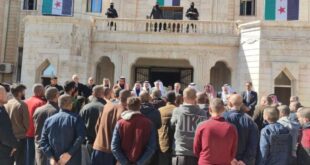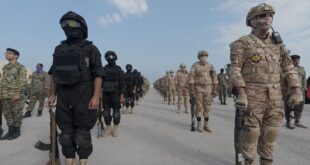NAIROBI (AFP) — Transitional Somali President Abdullahi Yusuf Ahmed has appealed to the UN Security Council to modify a 13-year-old arms embargo on his country to allow a proposed regional peacekeeping force to be deployed to the lawless Horn of Africa nation.
On the eve of the council’s planned debate Thursday on an African Union request to ease the embargo, which many fear could lead to further violence, Yusuf said his government’s efforts to restore stability in the country would be badly hampered if a complete ban on weapons transfers remained in place.
But in a bid to ease fierce opposition to the move from the United States and scepticism about its wisdom from UN chief Kofi Annan, Yusuf stressed that he was not asking for a complete lifting of the embargo.
“We urge prompt modification of the arms embargo provisions to allow our national security force and the (regional) peacekeeping forces to sufficiently stabilise conditions in Somalia as we return to govern from our homeland,†he said.
“We are not looking for a permanent removal of the arms embargo, rather seeking support and the resources necessary to deploy our national security force and international peacekeeping mission,†Yusuf said in a statement.
“It is imperative that the UN facilitate our goal of making Somalia a stable nation,†he said.
The statement was released late Wednesday from the town of Galkayo in Somalia’s semi-autonomous Puntland region where Yusuf has been holed up for more than a week amid a bitter dispute within his government over where it should be based.
The African Union (AU) in January authorised the seven-nation east African Inter-Governmental Authority on Development (IGAD) to deploy peacekeepers to Somalia to help Yusuf’s government get a foothold in the country.
IGAD’s plans to deploy some 10,000 troops to Somalia have, however, been repeatedly delayed amid bickering and threats of violent confrontation among Somalis over the seat of government and the composition of the peacekeeping force.
Yusuf and his supporters say the government, which recently left its home in exile in Kenya, should move to the town of Jowhar, citing security concerns in Mogadishu, and want troops from all IGAD nations in the peacekeeping mission.
But Mogadishu warlords insist the government should be based in the capital and are violently opposed to the participation of troops from neighboring countries, particularly Ethiopia which has backed Yusuf in the past.
Amid the standoff, AU ministers meeting in Libya earlier this month asked the Security Council to lift the arms embargo on Somalia to free up the IGAD mission for deployment.
President urges Security Council to ease arms embargo
NAIROBI (AFP) — Two journalists detained for nearly two weeks in Somalia’s semi-autonomous Puntland region have been released but a third remains in jail after almost a month, a global press freedom watchdog said Thursday.
The New York-based Committee to Protect Journalists (CPJ) said Sheekh Aduun, director of a radio station in the Puntland town of Bossaso, and Awale Jama, an editor at the station, were freed on Tuesday without charge.
The arrests of Jama and Aduun were linked to the station’s reporting on the mayoral campaign in Bossaso, according to local sources cited by the CPJ which had complained the June 30 arrests were illegal and said it “welcomed†their release.
At the same time, the organisation said it was troubled by the continued detention of a third Puntland journalist arrested on June 19 as well as reported attempts by Puntland authorities to censor another radio station.
“CPJ remains deeply concerned by the continued imprisonment of Abdi Farah Nur, editor of the weekly Shacab, and by reported attempts to censor the private radio station, Voice of Peace, in the Puntland city of Galkayo,†it said.
Nur’s colleagues have said they believe his arrest was related to critical articles he published about the region’s leadership and Somalia’s Transitional Federal Government, according to the CPJ.
 Eurasia Press & News
Eurasia Press & News



